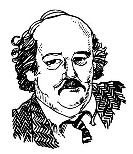Syndicated to Kansas newspapers Feb. 20, 2017
 Gotta wonder just how many legislators will schedule public meetings to report to constituents on progress of the 2017 Kansas legislative session next week. Or, whether they’ll even step outdoors to do their own grocery shopping between Friday and March 5 while they are on break.
Gotta wonder just how many legislators will schedule public meetings to report to constituents on progress of the 2017 Kansas legislative session next week. Or, whether they’ll even step outdoors to do their own grocery shopping between Friday and March 5 while they are on break.
The time frame is tricky.
Beside debating and passing with non-veto-override margins in the House and Senate a bill that will tax those LLCs again, and put back that top income tax bracket, not much else has happened.
Legislators don’t know whether Gov. Sam Brownback will sign that tax increase bill that will lighten Kansans’ wallets by about $590 million next year—and may not know until after their break ends and they come back to work on March 6.
So, what do they talk about with neighbors and constituents during that week? Well, there’s just that one bill that the governor has signed so far this session, the deal that established the dates and some other details of electing a new U.S. House member in the 4th Congressional District to replace Mike Pompeo, who resigned that seat when he got a (better?) job as President Donald Trump’s director of the Central Intelligence Agency.
Well, three-quarters of Kansans won’t see their life change in that April 11 election for a new congressman, so…we guess they’ll talk about taxes…and probably be delighted to shift the conversations to guns in hospitals and colleges.
But it might be a long week for those legislators whose constituents are mostly going to know about the tax bill and want to know whether they’ll pay more or less (don’t count on that) and whether those LLCs which Brownback would prefer not to inconvenience are going to start paying taxes.
With an estimated 330,000 Kansans not paying taxes now and likely to see that change if the tax hikes become law…the intensity of the conversations rises.
(Might be good for those off-duty legislators who do leave the house to buy groceries to purchase hamburger or hot dogs, and not prosciutto.)
If the governor vetoes the bill, those non-taxpayers get a gulp of air—even those who in public rend their garments and lament that their tax preparer doesn’t know what form to use to make voluntary contributions to the State General Fund.
A quick decision by the governor, sign or veto, will make those legislative break meetings with constituents clearly as a victory, for some, or a defeat for some, or the bell that opens the second round of this fight.
If the governor decides not to sign and wait out the calendar? Well, that’s a little different than a veto in terms of public response. Many, or at least some Kansans, remember pictures of legislators crowded around the governor’s desk back in 2012 when he signed that seminal tax cut bill into law. We’re thinking that not many of those photos are still taped to the refrigerator door, but he didn’t wait 10 days for it to become law. He signed it quickly.
Sign or veto, those are the definitive actions he can take, and like it or not, it probably represents the firmly held opinion on the part of Brownback whether it is the best thing for the state. Or not. Checking off days on a calendar doesn’t.
So, we’ll see just what happens: Delay or an affirmative or negative action on a bill that has triggered budget cuts, sweeps of funds from state agencies and the state’s current fiscal year budget shortfall.
One way or another, a fast decision would probably make those meeting with constituents on the upcoming vacation week a little easier to handle, or at least script.
We’ll see, won’t we?
